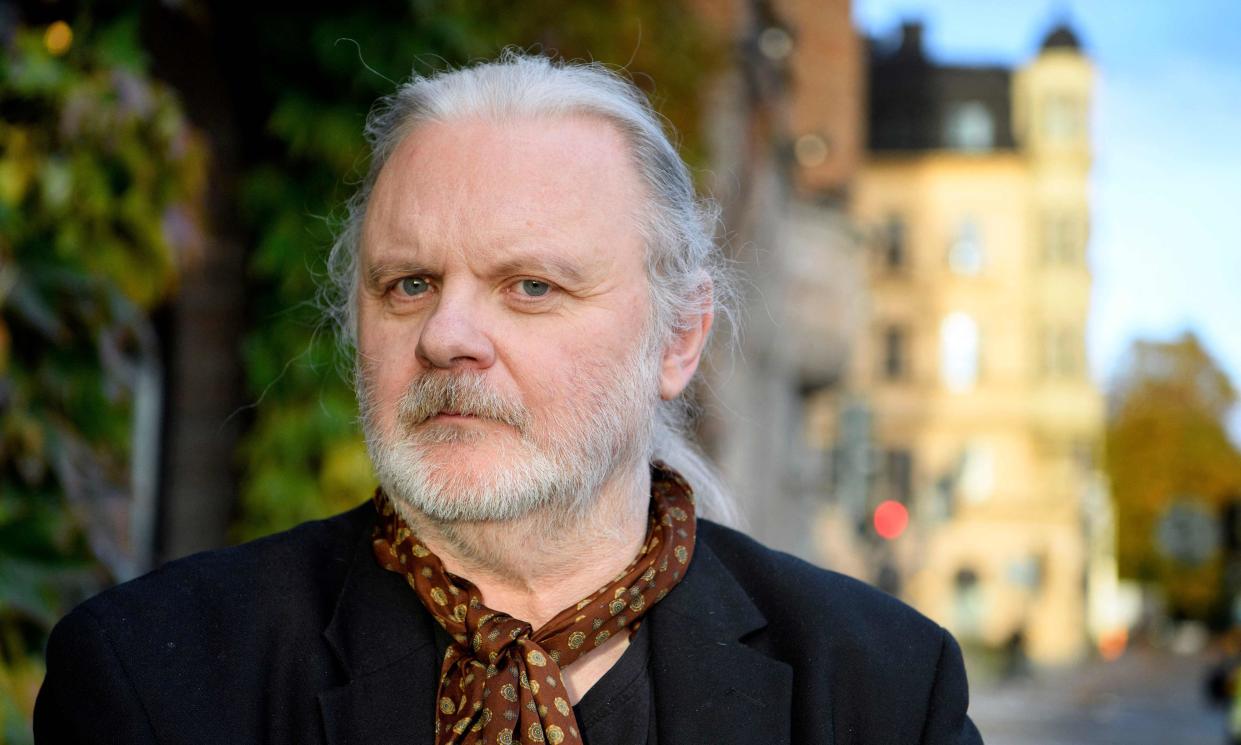Jon Fosse wins the 2023 Nobel prize in literature

The Nobel prize in literature has been awarded to 64-year-old Norwegian author Jon Fosse “for his innovative plays and prose which give voice to the unsayable”. His works include the Septology series of novels, Aliss at the Fire, Melancholy and A Shining.
“His huge oeuvre, spanning a variety of genres, comprises about 40 plays and a wealth of novels, poetry collections, essays, children’s books and translations,” said Anders Olsson, chairman of the Nobel committee for literature. “Fosse blends a rootedness in the language and nature of his Norwegian background with artistic techniques in the wake of modernism.”
“I am overwhelmed, and somewhat frightened. I see this as an award to the literature that first and foremost aims to be literature, without other considerations,” Fosse said in a statement.
He also told the Norwegian public broadcaster NRK that he was “surprised but also not” to have won. “I’ve been part of the discussion for 10 years and have more and less tentatively prepared myself that this could happen,” he said.
Jacques Testard, Fosse’s fiction publisher, said on hearing the news: “He is an exceptional writer, who has managed to find a totally unique way of writing fiction. As his Norwegian editor Cecilie Seiness put it recently in an interview: if you open any book by Jon and read a couple of lines, it couldn’t be written by anyone else.
“His fiction is incantatory, mystical, and rooted in the landscape of the western fjords where he grew up,” Testard added. “It’s very important to remember that he writes in Nynorsk or New Norwegian, a minority language in Norway, a political act in itself. He’s also an exceptional playwright and poet. He’s an incredible mind, and it couldn’t have happened to a nicer person.”
Callout
The Norwegian writer’s English translator Damion Searls said he is thrilled Fosse’s work will now find an even wider audience. “I first brought Fosse’s fiction into English almost 20 years ago. I read Melancholy in German and immediately felt that the work was brilliant and needed to be translated. I found an American publisher and a co-translator, and started learning Norwegian”, he told the Guardian. “I have since translated around 10 books of his, depending on how you count them, including a libretto, a play and a forthcoming children’s book.”
Though the author and translator mostly communicate via email and hadn’t met in person until the 2022 International Booker prize events in London, Searls considers Fosse a friend. “He is the same kind, wise, modest, friendly, supportive person over email as you would expect from his novels, and corresponding with him has always brought me the same kind of peace and serenity his novels so magically impart.”
Born in 1959 in Haugesund on the west coast of Norway, Fosse grew up in Strandebarm. Aged seven, he nearly died in an accident, which he said was “the most important experience” of his childhood and one that “created” him as an artist. In his adolescence, he aspired to be a rock guitarist, before turning his ambitions to writing.
His debut novel, Raudt, svart (Red, Black), was published in 1983. His first play to be performed, Og aldri skal vi skiljast (And Never Shall We Part), was staged at the National Theater in Bergen in 1994. Yet, the first play he wrote, Nokon kjem til å komme (Someone Is Going to Come), would lead to his breakthrough in 1999 when French director Claude Régy staged it in Nanterre.
Fosse went on to become the most-performed Norwegian playwright after Henrik Ibsen. He has written more than 30 plays, including Namnet (The Name), Vinter (Winter) and Ein sommars dag (A Summer’s Day). His longer works include the Septology trilogy, the third volume of which was shortlisted for the international Booker prize in 2022.
Septology, which Fosse started during a pause from playwriting and after converting to Catholicism in 2013, is about an ageing painter, Asle, living alone on the south-west coast of Norway and reflecting on his life. There in Bjørgvin lives another Asle, who is also a painter but struggles with alcohol. The doppelgangers are consumed by the same existential questions about death, faith and love.
Related: Jon Fosse: ‘The idea of writing another play doesn’t give me pleasure’
In 1989, the same year that Fosse’s novel Naustet (“Boathouse”) came out, the writer taught the fellow Norwegian author Karl Ove Knausgård, who was a student at the Academy of Writing in Hordaland. “Fosse’s voice is unmistakable in whatever he writes, and is never anything if not present,” wrote Knausgård in 2019.
Fosse’s UK publisher is Fitzcarraldo Editions, which also publishes Annie Ernaux, the winner of the 2022 Nobel prize in literature. Fosse’s win marks the London-based independent publisher’s third win in five years: Olga Tokarczuk was made laureate in 2018. The prize was postponed and awarded in 2019 instead due to a sexual assault scandal involving the husband of one of the academy’s former members which led to several members resigning.
Fosse resides between Austria and Norway. He will receive the prize at a ceremony in Stockholm on 10 December. He will receive 11m SEK (£821,209), up from 10m SEK awarded last year.


